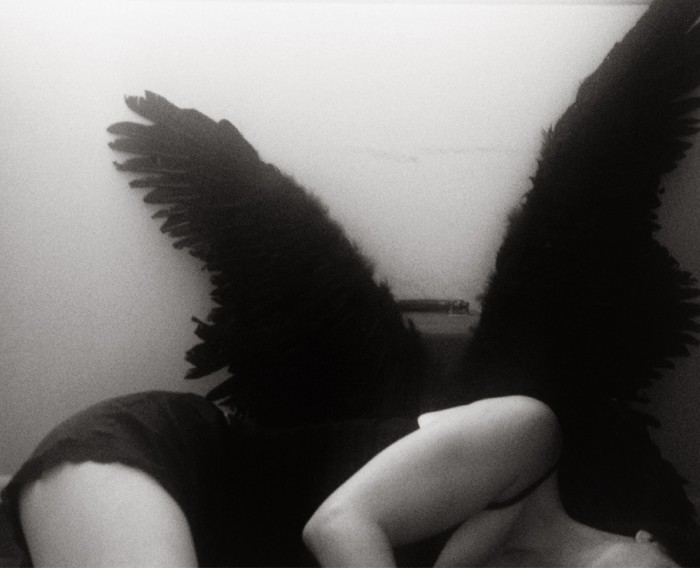
A List for Love & Letting Go
1. Loss is far reaching in its taking, with limbs stretched in every direction, and it is intimate as the first skin against skin.
It is the people we love who died, and those who do not die but leave, and those who do not leave but even though they are right there in front of you, you still can’t locate them.
And all of these are a kind of loss.
It is also places that die and disappear. And fears and beliefs. And a man I never met but one whose words meant whole worlds to me. And the lives I once lived, the other incarnations of my own self in this lifetime. And the parts of my body the cancer came and took. Also, old names I used to call myself that are no longer true. Also the one who was my memory-keeper. Also dreams and imagined futures, moments and memory and family. And all of it gone now, dead and burned or buried.
There are a great many ways to know loss, and last night as I painted skulls and set out candles, I crawled inside them all.
2. Sometimes you have to hold on until the very last minute of letting go.
Hold with clenched fists and locked jaw, rope burn on your palms. Hold on like your life depends upon it—because it does. Because the moment you release it or it is pried from your closed hand, your life will in fact no longer be the same.
3. There were those years (they were the ones when I had the houseplants and often sat on the kitchen floor like I was lost and looking for the trapdoor out) and I would lay in bed and ask the same questions over and over again:
Where do you think Lazarus went, before being brought back to the living? What do you think that was like, to be gone and then here? Do you think he was ever the same again, or did he walk around with a limp of lost memory? Do you think he wanted to be raised? And the one I was asking the questions to would fall asleep and I would lay there for a long time after, eyes open wide awake, staring at the cracked ceiling, whispering his name in the dark, “Lazarus, Lazarus, Lazarus.”
4. Then there was that moment, when I looked at her and I cannot say I knew, or that there was assumed certainty.
But it was clear. Everything was clear, walking through the fish market and how it was warm, like stealing summer. Looking at her across fresh oysters, and I thought, wherever we go after this life, it is enough that I was here in this moment with you. And if resurrection exists, it is not what was gone that comes back to life. It was that life keeps moving toward life.
It was this, that moment, having coffee and walking through the streets with her.
5. It was in Mexico that I learned what it is to celebrate the living by honoring the dying.
6. It was in New Orleans, where everything is more alive, that I learned to grieve.
7. Can we talk about grief?
When did we sanitize the gutting of loss, making those who are in mourning either wear the mantle of mentally ill or else go into hiding until they can clean up and present themselves as strong and full of grace? What would we learn if we allowed for the unhinged underworld to show its face, to confront the discomfort it brings, and not look away?
8. And there are the things that cannot be spoken.
But the loss is great, the terror of it consuming. And I think sometimes the thing we want most is to be met fully in the emptiness, to be heard in the silent spaces. And I wonder if there are certain losses that we live with always. How you move on but never fully mend.
It is this way for me.
9. There is the loss itself.
And there is that moment when you realize that you are no longer sad, and how this too is a loss. That you don’t think of them anymore in the same way.
And for those moments it hurts, like you are missing the missing.
10. And then there are the moments when it all comes crashing back into you.
The way one loss opens the door to every loss you’ve ever known, and you thought you were so far past this, as if psyche kept a strict timeline, except there you are, two years and twenty eight years later, crying with heaves while driving in the car on the day when fall crossed over into winter.
Falling in love is this way too.
11. All love is singular.
So is the dying. I had expected the losses that devastate…and then there are the ones that defy our own expectations.
I had thought I would be sad. And I was.
It is just that the relief was stronger than the grief.
12. Because sometimes it’s a past you are asked to release.
And sometimes it is letting go of the dream, the imagined and hoped for future, the unconsummated love, the green light at the end of the dock. To shut the wardrobe door, to never return, so you can say “yes” to this life here in front of you; real and worth living for.
13. As I was setting up my alter, going through the small box of keepsakes, I remembered last March.
I remembered how, when deep cleaning, I came upon boxes of things I had not looked at in years. Most of the day I was lost there in time or timelessness, while I unpacked and unearthed things, these strange and wonderful portals of memory.
The honey turns to dust.
I am grateful for both. I leave my offerings, and I burn the rest. And I say thank you, for all the love.
14. There is the defiant and desperate holding on (over my dead body, we say).
And then there is the willing release.
And in this past year of so much loss, so many deaths, it occurs to me that perhaps it was a relief to just let go.
And so I did, not even knowing that to let go is to affirm life.
15. Something shifted, cells re-arranged, walking into the second half of things.
My life was just too short to spend any time trying to make it work, to force an outcome, to demand difference as if owed.
I stopped the trying. the fixing. the figuring out. And this—the refusal to try to make things work—was like knowing the wholeness of my presence. My life belonged to me now.
16. It was also much less exhausting.
17. So I know now that it is possible to release trying to change someone else’s mind.
Trying to convince. Trying to make a thing happen or not happen. Trying to get them to see.
Trying to cajole them to validate your reality. How do I explain the liberation of this, that after years of believing you have to fight your way through, somehow it happens (through much hard work, and growing up) that you are here, standing solid on your own two feet?
And you no longer need to make another do or not do anything to prove your own worth or reality. You are your own witness. Your own experience is enough.
It is everything.
18. In the releasing, I lost what was already gone.
And the grief changes the very shapes of things and you are never the same again and then you let go even of the grieving. You just let go. And you are here, living.
You are here, taking a bath and reading the body’s memory and listening to the steam heat radiator hiss and clank out warnings of winter. you are here, planting things in a raised box of earth, and drawing maps on your floor, and you no longer fight with your own feelings.
You are here, and there was that moment when you were standing there eating the blackberries from the cardboard carton, still warm from picking off the branches, and you knew in some reconfigured way, that the price of letting go was giving up getting to have had a different story, and the unexpected offering of letting go was complete freedom.
19. I still miss them, the people and places who are no longer here.
And I still get homesick for a place that never existed. I still know some things in my body as horror that should never ever have happened.
But it did. It did happen.
I still wonder in moments how it is possible, to see some things and survive. But I did.
And somehow I crossed over a threshold to a place where there is no going back. I let go, and saw how it was true, what she said to me that morning in L.A., moonshine and wreckage.
That not in in spite of letting go—but because of it—I was intact.
20. No return.
But sometimes still, like on these days, they come and visit me. And I tell them the story of reparation. And the veil grows so thin, as we walk between the worlds for these hours. And I get—if even only in my own imagination—to talk to them and to the self I once was, say thank you, and offer my love for the letting go and crossing overs, whatever they may be.
More awesome from Isabel:
The End of Internal Starvation.
Reclaiming Sweet Freedom: 23 Things That we Need Not Explain, Justify or Defend.
Author: Isabel Abbot
Editor: Renée Picard
Photo credit: Stacy de la Rosa






Read 2 comments and reply